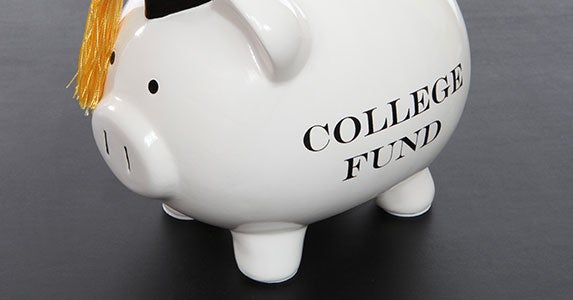It can be pretty scary when you are unable to pay back your student loans, and the consequences of defaulting on loans can be severe. You may start thinking about your credit score being ruined or having collection agencies start knocking on your door. However, don't panic, there may be some options available to you.
What is important is that you need to learn about the various options you have when it comes time to pay back your student loans. Default is something that you should try to avoid at all costs as it will not only damage your credit score, but it will also most likely increase the balance on your loans. Indeed, your loan holder may even get a court order that would allow them to take a portion of your paycheck or even grab your tax refund.
Student Loan Repay Options
There are several options that are available to you when you cannot make the payments on your student loans. These options include:
- Delaying payments on your loans through forbearance or deferment programs,
- Getting your loan canceled and eliminating all payments,
- Discharging your loan through bankruptcy proceedings,
- Getting on a income-sensitive or income-based repayment schedule, or
- Consolidating your loans into one loan.
Student Loan Deferments
In some situations, you may be able to obtain a deferment on your student loan payments. These deferments allow you to stop making payments for a certain period of time if you can show that you qualify. For instance, you may be able to get a deferment if you can show economic hardship, are returning to school, are unemployed, or looking for a job.
Depending on your type of loan, the deferment will not only allow you to stop making payments on the principal, but it will also stop interest from accruing on the unpaid balance. For other types of loans, you are only allowed to defer the principal of the loan, meaning that interest on your loan will continue to increase during the time you are not making payments. You will need to figure out what types of loans you have, as well as where you got them from, in order to see what kinds of deferments you are eligible for.
In most situations, you will be able to defer payments on your student loans if you meet one of the conditions that are described below (see the last section of this article titled "Conditions for Deferments on or Cancellations of Student Loans") and you are not currently in default on your loan. In some situations, you may even be able to qualify for a deferment even when you are in default this is called a retroactive deferment.
Like many things in life, deferments are never automatically put in place. In general, you must apply for a deferment. To do this, you should contact your loan holder and get the necessary paperwork. It can be a lot of work to get everything done correctly, but you should take the time and do it properly if a deferment will help you.
To get the necessary paperwork, you should contact your loan holder and talk to them about the various types of deferment that you think you may qualify for. Then, you should ask them to send you the right forms that you need to fill out. Doing this may help keep the loan holder from calling you about past due payments.
Student Loan Forbearances
If you are unable to qualify for a deferment, you may be able to postpone payments on your student loans by setting up a loan forbearance. A loan forbearance can generally be thought of as your loan holder allowing you to stop making payments for a set period of time. However, you should keep in mind that interest will continue to accrue during a forbearance so your loan balance will be higher when you come out of the forbearance. Generally, forbearances are easier to obtain than deferments because they are not linked to the type of student loans you have and they are not covered by the laws and rules that apply to deferments and cancellations of student loans.
Generally, you may be able to obtain a forbearance for a variety of reasons. For example, if you have suffered from poor health or unforeseen personal problems, you may be able to get a forbearance. Also, if you foresee that you will not be able to pay back your student loans within the period for repayment (generally 10 years), or your monthly payments are more than 20% of your income each month, you may be able to get a forbearance. Loan forbearances are generally granted for up to one year at a time and you may be able to get a forbearance even if you have defaulted on your student loans.
In order to apply for a forbearance, you should contact you loan holder and tell them about your inability to pay. You will probably have to fill out some forms, either online or via mail, to apply for a forbearance.
Bankruptcy and Student Loan Discharge
Another option that you have when you cannot pay back your student loans is to try to have your loans discharged through bankruptcy. However, this is very hard, indeed almost impossible, to accomplish under current law. Generally speaking, your student loans can only be discharged through bankruptcy if you can show that the burden of repaying your student loan would impose a severe hardship on you. This is quite a tough standard to meet. Courts generally consider a number of factors when you try to make this argument such as your age, health condition, income, expenses, and the length that your income problems are likely to persist.
In order to have the best chance of having your student loans discharged through bankruptcy, you will have to file a separate court action and you should probably also hire an attorney to help you make the most convincing argument possible.
Cancellation of Student Loans
Much like a loan deferment, there are only certain situations in which you may be able to have your student loans cancelled. Just like a deferment, you will have to show that you fall into a specific situation (see the last section of this article titled "Conditions for Deferments on or Cancellations of Student Loans") depending upon what types of loans you have. Also, cancellation does not always take care of an entire loan and you may only end up getting a portion of your loan cancelled.
The first step in the loan cancellation process is to contact the holder of your loan or the Department of Education's Debt Collection Services Office. You will be required to fill out a loan cancellation application and submit this form with any requisite documentation (like proof of a disability via a note from your doctor that describes your physical condition and how it impacts your ability to work).
Conditions for Deferments on or Cancellations of Student Loans
Here are the conditions that may allow you to defer or cancel your student loans. Keep in mind that some of the conditions may only qualify you for loan cancellation, others for both deferment and cancellation, and others for only deferment. Be sure to read carefully.
- The borrower has died. If the person that took out the student loan has died, the executor of the borrower's estate will most likely be able to cancel any student loans that the deceased had outstanding.
- The borrower is suffering from a permanent total disability. If you have suffered a personal injury that prevents you from working for an indefinite period of time or that will likely cause your death, you may be eligible to cancel any student loans you have. Generally speaking, to qualify for this cancellation, you cannot have had this permanent total disability before you applied for your student loan, or your situation must have deteriorated significantly since that time. In order to prove this, you will need to supply a letter from your doctor, most likely on a form that your loan holder will provide.
- The borrower is suffering from a temporary total disability. If you have a student loan that you took out before July 1, 1993, you may be able to defer loan payments for up to three years if you can show that you, your spouse or a dependant has suffered from a temporary total disability. If you are claiming you have the disability, you must be able to show that you are unable to attend school or a work a job for at least 60 days. If it is your spouse or dependant that suffered the disability, you must be able to show that the disabled person needs you to care for them for at least 3 months.
- The borrower is enrolled in a rehabilitation program for his or her disability. If you are currently enrolled in a rehabilitation program for a disability you suffered, you may be able to defer your loan payments for the length of the program and an additional six months after the program ends.
- The borrower is unemployed. If you are currently unemployed, but are looking for work, you may be able to defer your loan payments. In order to qualify for this deferment, you will need to prove your unemployment (for example, by stubs for unemployment benefits) and/or your search for a job (written documentation of job applications). In order to qualify, you must be looking for full-time employment, meaning at least 30 hours a week for a period that is at least three months long.
- Economic hardship. If you have a loan that was obtained after June 30, 1993, you may be able to defer payments for up to three years if you can prove that you are suffering from an economic hardship. If you receive public assistance (such as welfare or SSI), you are automatically entitled to this deferment. However, if you are not receiving public assistance, you must apply for an economic hardship deferment. This application will look into your wages and compare them to the federal minimum wage as well as the federal poverty level. You will need to provide proof of your income, most likely through pay stubs.
- The borrower is currently enrolled in school. If you return to school on at least a half-time basis, you will most likely be able to defer you payments until you leave school again.
- The borrower enters uniformed service. If you are currently serving the country in one of the uniformed services (U.S Military, National Oceanic and Atmospheric Corps or the Public Health Service), you may qualify to have your loans deferred or cancelled. You should talk to your commanding officer as well as your loan holder to see what you qualify for.
- The borrower is teaching a needy population. If you are currently a teacher that is teaching for a needy, low-income population, you may be able to have your student loans canceled or deferred.
- The borrower is serving a needy population. If you are currently serving a needy population, but not teaching them, you may also be able to qualify to have your loans deferred or cancelled.
- The borrower is performing community service. If you have student loans and are currently performing community service (such as serving in the peace corps or volunteering with local associations that assist low income families), you may be able to partially cancel your student loans or get a deferment.
- The borrower is working in the health-care field. Borrowers that are currently working in the health-care field (for example, nurses or doctors in residency) can sometimes have their loans canceled or deferred.
- The borrower is working in law enforcement. If you are working full time in the law enforcement field (police force and sheriff's office), you may be eligible to have some of your older Perkins loans cancelled.
- The borrower went to a trade school. If you were goaded into attending a trade school only to have the school close before you could obtain your degree, or if you were falsely told that taking out a student loan for trade school would benefit you, you may be eligible to have all of your student loans forgiven.
- The borrower was a victim of identity theft. If someone used your identity falsely to obtain a student loan, you will most likely be able to get the loan canceled.
- The borrower left school but never got a refund. If you were a student that took out a student loan but withdrew from the school before attending any classes, or only attended less than 60% of the class before withdrawing and never received a refund, you may be able to cancel your loan up to the amount that you should have received as a refund.
- See more at: http://bankruptcy.findlaw.com/debt-relief/your-options-when-you-can-t-repay-student-loans.html#sthash.sz10b0Gd.dpuf







